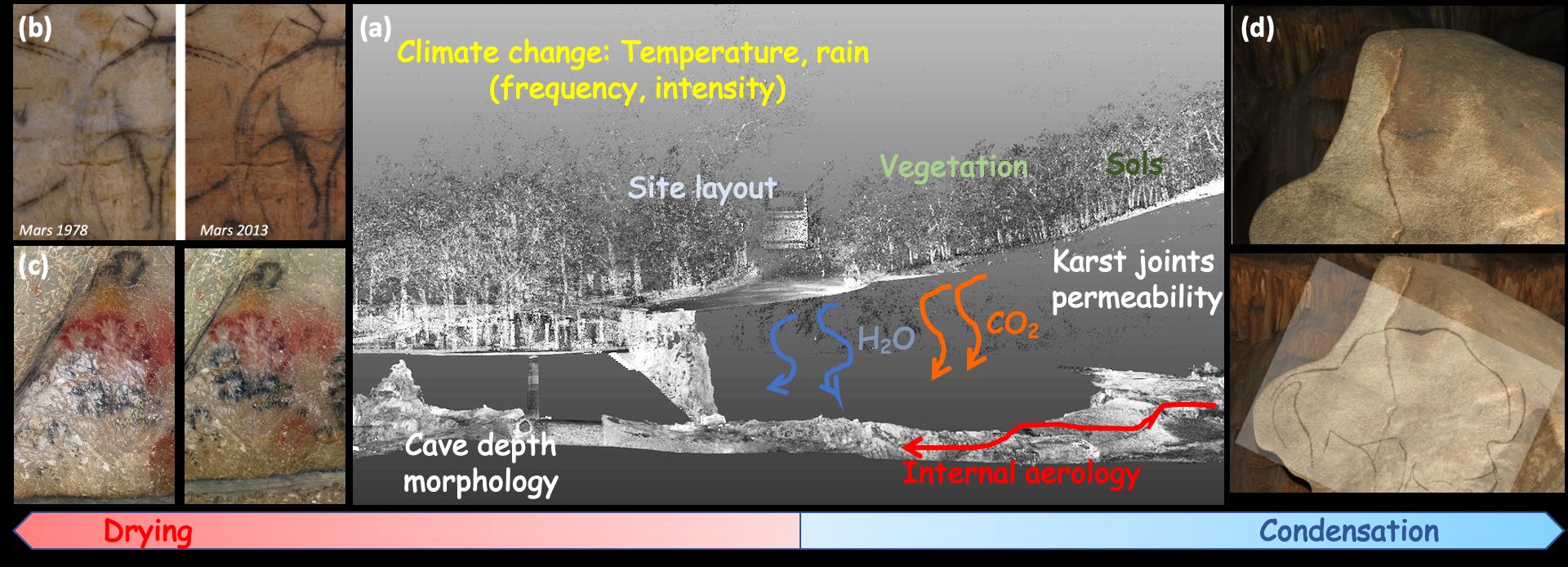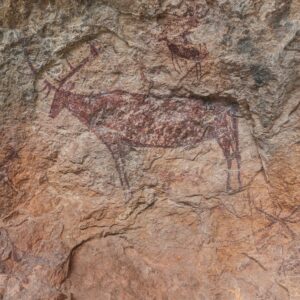The collaborative research project DECACLIM [DEcorated CAves under CLIMate changes: Redefining an effective conservation strategy] selected for funding under the 2022 Generic Call for Projects.
The effects of global warming are felt even in historic cave paintings where rock drawings preserved for thousands of years are being impacted. The conservation of these drawings, which are located at the interface between the rock surface, the atmosphere and a thin film of water that covers them, is the result of a fragile balance, which is undermined by the change in the cave’s airflow generated by the increase in the temperature difference between the surface and the bottom of the cave. The increase in CO2 concentration in the air also plays a negative role and contributes to more solid deposits and corrosion on the surface.
With the aim of defining strategies to combat these phenomena, this project coordinated by Geosciences Environment Toulouse (GET) brings together the skills of 8 laboratories: Environnements et Paléoenvironnements Océaniques et Continentaux (EPOC in Bordeaux) – Institut de Physique du Globe de Paris (IPGP) – Laboratoire de Recherche des Monument Historiques (LRMH) – GeoRessources in Nancy – Laboratoire des Sciences du Climat et de l’Environnement (LSCE in Gif sur Yvette) – Centre National de la Préhistoire (CPN PACEA in Paris) and the LEMTA.
LEMTA’s research work will focus on modelling the aeraulics of an ornate cave and on the study of the phenomena of condensation of humid air on the walls with the formation of a water film. Led by Abdelhamid Kheiri – Heat Management team, they also bring together the skills of his colleague Mohammed Khalij, and Boris Arcen – Fluids and Complex Flows in Industry and Nature team.
Duration: 48 months | Funding obtained: 807 K€ (including 147 K€ for LEMTA)

